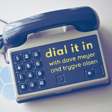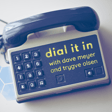
S3 Ep13: Navigating Human Resources with Sheri Stolp
In this episode of the Dial It In podcast, hosts Trygve and Dave discuss human resources (HR) with Sheri Stolp, president of The Stolp Group. They explore the complexities of HR, including the evolution from personnel to strategic HR, the importance of hiring the right talent, and the challenges of the work-from-home era. The discussion touches on the impact of AI in hiring, the best practices for terminating employees, and adapting communication styles across different generations. Trygve and Sheri share personal anecdotes to illustrate the points. Sheri highlights the importance of being human-centered and proactive in HR practices, especially in handling difficult conversations and maintaining compliance with evolving laws.
Connect with Sheri and theStolpGroup
thestolpgroup.com
LinkedIn
Our Sponsor
WeFixHubspot.com
…
Dial It In Podcast is where we gathered our favorite people together to share their advice on how to drive revenue, through storytelling and without the boring sales jargon. Our primary focus is marketing and sales for manufacturing and B2B service businesses, but we’ll cover topics across the entire spectrum of business. This isn’t a deep, naval-gazing show… we like to have lively chats that are fun, and full of useful insights. Brought to you by BizzyWeb.
Links:
Website: dialitinpodcast.com
BizzyWeb site: bizzyweb.com
Connect with Dave Meyer
Connect with Trygve Olsen
Show

